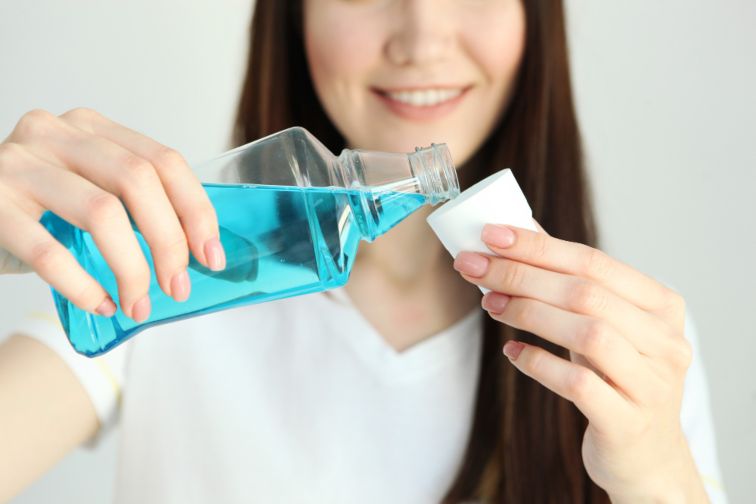Are you expecting a baby? Pregnancy is the time when you need to take care of your health with utmost care. We will discuss here 12 dental care tips during pregnancy. You are busy with your schedule of diet management, hospital visits, and preparations for the new member of the family. However, it is equally important to consider your dental health during pregnancy. Dental check-ups are very important before conceiving, during, and after pregnancy as your oral health can also affect the health of your baby.
Pregnancy and dental health go hand in hand. Pregnancy leads to various hormonal changes in the body which can lead to serious dental concerns placing you and your baby at risk. Frequent vomiting and food cravings during pregnancy can increase the level of bacteria and acidity levels in the mouth. It can lead to bleeding gums and tooth sensitivity. Due to poor oral health during pregnancy, pregnant women can face many issues like pregnancy gingivitis, gum problems, dental caries, dental erosions, premature delivery, low birth weight baby, loose teeth, and mouth dryness. Daily oral hygiene routine and regular dental visits can provide you and your child with a healthy start in life.
TIPS FOR DENTAL HEALTH DURING PREGNANCY
Being pregnant comes with many responsibilities, so visiting a dentist becomes a responsibility too when your child is in your womb. There are 12 important dental tips to keep your teeth healthy during pregnancy.
1. Brushing Teeth Regularly

Brushing twice a day is important as your teeth are at more risk during pregnancy. Morning sickness and vomiting may make it difficult to think about brushing. But brushing after your morning sickness goes off is a good idea. Brushing after vomiting can wear away the tooth enamel so wait for at least 30 minutes and then brush your teeth.
If you are having teeth sensitivity or gagging issues, you can use toothpaste with light flavor and small-sized children’s toothbrushes. The most important dental care tip during pregnancy is daily oral and dental care should be continued non-stop. When you are brushing your teeth, you are brushing for your little one too.
2. Floss Regularly

Clean between your teeth with dental floss daily as the dental floss reaches the tooth surfaces where a toothbrush can’t reach. This prevents dental caries and gum diseases as flossing prevents plaque buildup. Floss twice daily if possible or at least once a day is a must
3. Eat Healthy, Fewer Sugars

Eat a healthy balanced diet. Choose healthy food that protects your teeth. When you eat foods rich in sugar like candies, cookies, etc., it sticks to your teeth, and bacteria present in your mouth releases acid and causes tooth decay. Don’t eliminate the carbs completely from your diet during pregnancy. Consume your food in form of whole grains, fruits, and vegetables. Food cravings during pregnancy make it difficult to compromise, but you can munch on some healthier alternatives for your teeth. If you eat something sweet, brush your teeth or rinse immediately after your meal. Even after drinking milk, rinse and brush as milk also contains a sugar called lactose. One of the most important dental tips during pregnancy is that sugar should be avoided between meals, as long as possible.
4. Take Your Prenatal Vitamins And Minerals

Prenatal vitamins can improve your oral health as well as the dental health of your child. Increase your intake of vitamin D by taking a supplement or by taking sunlight. The deficiency of vitamin D can cause tooth enamel defects in a child. You need more calcium during pregnancy as its deficiency can initiate dental caries. A daily dose of calcium, vitamin D, and other vitamins should be taken to keep your teeth healthy throughout your pregnancy. During pregnancy, mothers should take calcium-rich foods like milk and dairy products and green leafy vegetables. Adequate intake of energy and nutrients affects mother and baby’s health positively. The important dental tip during pregnancy is that if you are eating gummy vitamins that contain sugar, then you must brush your teeth after that.
5. Visit Your Dentist

It is important to visit your dentist before planning to get pregnant. This ensures that you are entering your pregnancy with good dental health. Getting your dental treatments done before getting pregnant is the ideal way to be stress-free.
Regular dental visits and dental cleaning are necessary during pregnancy as well. Some pregnant women skip their routine dental visits but in fact, they are putting their little one in danger due to their fear. During pregnancy, hormonal changes take place and women become more susceptible to dental caries and gum diseases. The resulting infection can affect the baby and can lead to premature birth or miscarriage. Dental procedures are safe during the second trimester (3rd to 6th month) of pregnancy. So one of the most important dental tips during pregnancy is to get all your dental treatments done during the second trimester.
6. Drink Water

Salivary flow decreases and the formation of caries increases during pregnancy. Drink water regularly as it prevents dental decay and mouth dryness. Avoid drinks that contain added sugars like energy drinks, juices, soft drinks, etc. as it increases the chances of tooth decay.
7. Quit Smoking & Drinking

Smoking affects the gums especially leading to periodontal inflammation. It causes a smooth tongue so it becomes difficult to clean the tongue and to maintain oral hygiene. Due to the anemic effect of smoking, bleeding from the mouth can be seen spontaneously. Various chemicals present in smoke have direct toxic effects.
Overuse of alcohol consumption by pregnant women can lead to dental anomalies in babies like small teeth, structural deterioration of enamel, and delayed eruption of teeth. It can also cause oral pathologies in the mother which will impact the health of the baby too. The most important dental tip during pregnancy is not to smoke or drink alcohol. The earlier you quit smoking and drinking before pregnancy is better for you and your baby.
8. Swish Baking Soda

Most pregnant females experience morning sickness during the first trimester of pregnancy, or some women suffer from gastric reflux during late pregnancy. Hormonal changes during pregnancy can lead to frequent vomiting which leads to increased levels of acid in the mouth. This acid weakens tooth enamel, putting expectant mothers at a greater risk of dental erosion and dental cavities, if not removed immediately. To neutralize this associated acid present in the mouth, you can try swishing a teaspoon of baking soda mixed in warm water. This baking soda rinse will be helpful in protecting your teeth as well as eliminating the sour taste. It is one of the most helpful dental tip during pregnancy.
9. Watch For Gingivitis

During pregnancy, hormonal changes can lead to swelling and bleeding of gums called pregnancy gingivitis. The placenta produces higher levels of progesterone and estrogen in pregnancy that can cause bacteria to grow and make gum tissue sensitive to plaque. It usually happens between the 2nd and 8th months of pregnancy and can reach its peak during 3 rd trimester and heals spontaneously after birth. During pregnancy, epulis or pregnancy tumors are very common.
Watch for any signs of gingivitis during the long stretch between your regular visits. The early signs of pregnancy gingivitis are: Swelling and redness,Bleeding gums,Sensitivity in teeth and gums,Difficulty in chewing,Bad breath and Mobile teeth
If you notice any of these signs, then you must visit your dentist. Keep a watch on early signs of gingivitis so that you can prevent the infection that can jeopardize your pregnancy. Prioritize dental care and oral hygiene and this is one of the important dental care tips during pregnancy. To know how to stop bleeding gums, read more…
10. Don’t Refuse For Radiographs

If your dentist decides to take a radiograph of your tooth, then don’t refuse it. Your dentist will use lead shields to protect your womb from exposure to excess radiations. If the diagnosis is not done on time, then you are putting your child at more risk. Nowadays, digital x-rays are used which does not increase the negative side effects significantly.
11. Use Mouthwash

Some pregnant women experience plaque buildup. Pregnant women experience bleeding gums more often due to hormonal changes and consequently avoid brushing and this leads to more plaque buildup. Your dentist can provide you with an antimicrobial mouthwash to keep the plaque away from your teeth. Rinsing once or twice a day is sufficient to keep your teeth healthy. Your mouth needs more care during pregnancy. One of the important dental care tips, during pregnancy is gargling with mouthwashes or saline warm water as warm salty water relaxes gums and reduces bleeding and sensitivity.
12. Control Your Pica

Pica is an eating disorder in which a person eats things that are not usually considered food. Some pregnant women experience extreme bizarre cravings for eating non-food items like ice, dirt, sand, glass, laundry detergent, etc. This condition is referred to as Pica. It is usually a symptom of iron deficiency anemia.
These substances can destroy your teeth and can even cause toxicity. These items can also lead to nutritional deficiencies. If you experience any such cravings, contact your doctor immediately.
ORAL HEALTH ASSESSMENT DURING PREGNANCY

Pregnancy is that time when women are motivated to adopt good oral hygiene and dietary habits. Prevention, diagnosis, and treatment of various oral conditions including X-rays are safe during pregnancy. Conditions that need immediate treatment like RCT, extractions, fillings or scaling can be done under the consent of a gynecologist. Delay of treatment may result in serious complications. Regular dental care is necessary for oral and general health. Improved oral health of pregnant women may decrease the level of cariogenic bacteria in the child and reduce the risk of dental cavities in the child.
DENTAL PROCEDURES WHICH CAN BE DONE DURING PREGNANCY
Dental treatments should be avoided in the first trimester of pregnancy as it is a very sensitive period and unnecessary intervention can cause complications. But if there is pain and emergency, then teeth must be treated urgently.
The second trimester is the appropriate period for any dental treatment like fillings, root canal treatment, or dental extraction if it is needed and unavoidable till delivery.
In the third trimester, the baby has grown considerably so it becomes difficult for the pregnant women to take the required positions for dental treatment. Sitting for too long in the dental chair is also not recommended. Turning the mother to the left side in a semi-supine position is helpful in such a condition. Dental intervention is recommended only in emergencies in the third trimester.
In emergency cases such as gingival inflammation and tooth infection, the existing infection can affect the baby’s health adversely as compared to the adverse effect of dental treatment. Radiographs and local anesthetics can be safely given during pregnancy under the guidance of a gynecologist. A dental check-up is recommended in every trimester. After a thorough check-up, oral hygiene sitting, and planned dental treatment like extraction or filling is done in the second trimester. Medicines should be taken only after consulting the doctor. Dental pain can be a reason for contractions to start, so it is recommended to take pain relievers under consultation to avoid undue stress.
SHOW YOUR LITTLE ONE A HEALTHY SMILE

The first thing your baby will see upon entering the world is your smile. Make your smile healthy by following these 12 dental tips before, and during pregnancy. A healthy mouth for mom also means a healthier mouth for baby. Once your baby is born, time will become extremely precious so get these routine dental appointments taken care of now.
Enjoy your pregnancy, but don’t neglect your dental care during the excitement. Contact us to book an appointment today.

Very useful information……. I also experienced the dental problems during the pregnancy… Tks so much ur useful information
Thank you for the wonderful insights Doc